







Junior doctors vote on pay offer



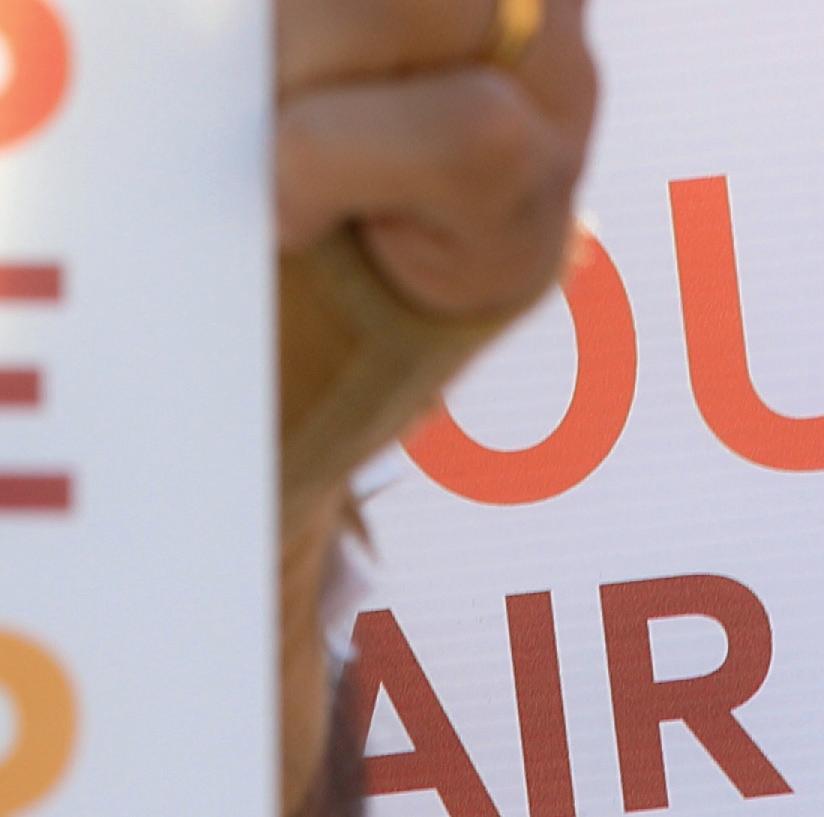

Collective action GPs move to protect their practices and patients
COVID inquiry How the Government prepared for the wrong pandemic
‘Anxiety

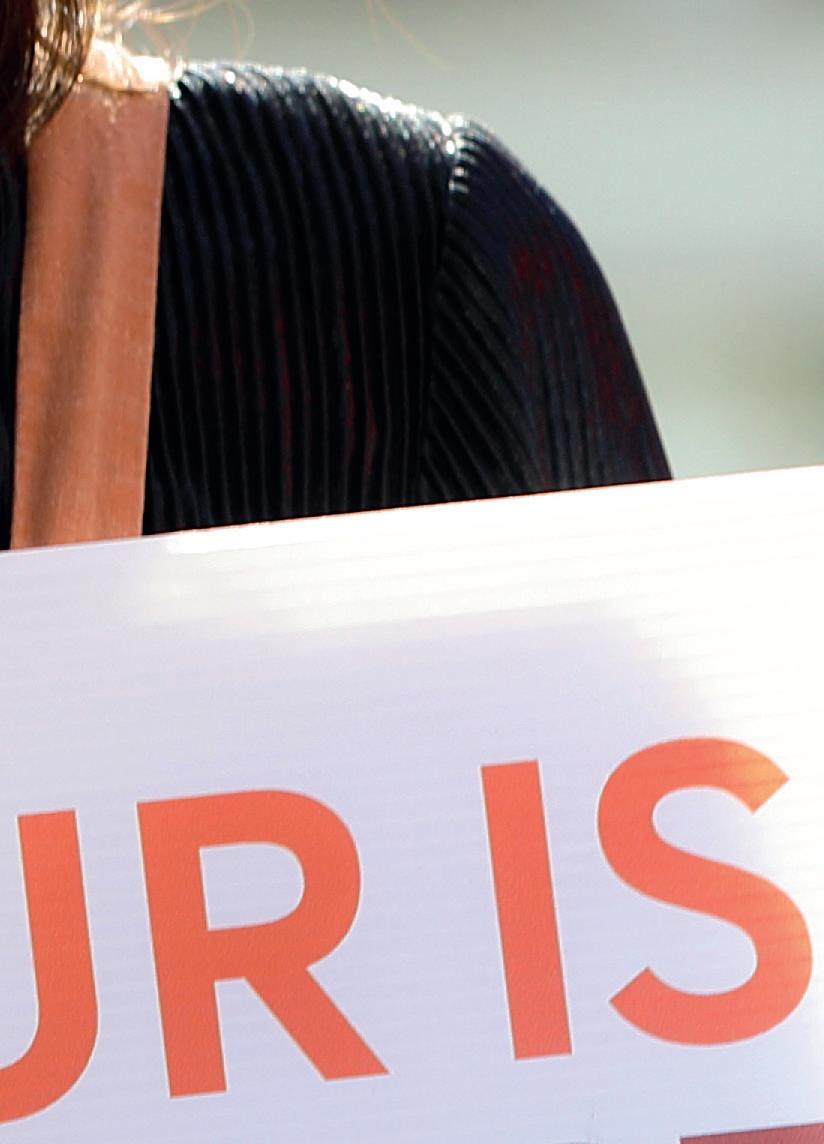

3
At a glance
GPs back calls for collective action to protect patients
4-5
Plea to save surgeries
A campaign to save practices in Wales gathers pace
6-7
Fair for all
The work of the BMA equality, diversity and inclusion advisory group
8-11
The eye of the storm Phil Banfield’s eventful first two years as BMA council chair
12-17
Not the only failing
‘Anxiety and panic’ – our investigation into the trust that treated Valdo Calocane
18-19
It starts with listening When patients from ethnic minorities fear they’re not being taken seriously
20-21
‘Credible first step’ Junior doctor leaders recommend the Government’s pay offer
22
Lessons must be learned How the Government prepared for the wrong pandemic
23
On the ground BMA wins holiday pay for GPs
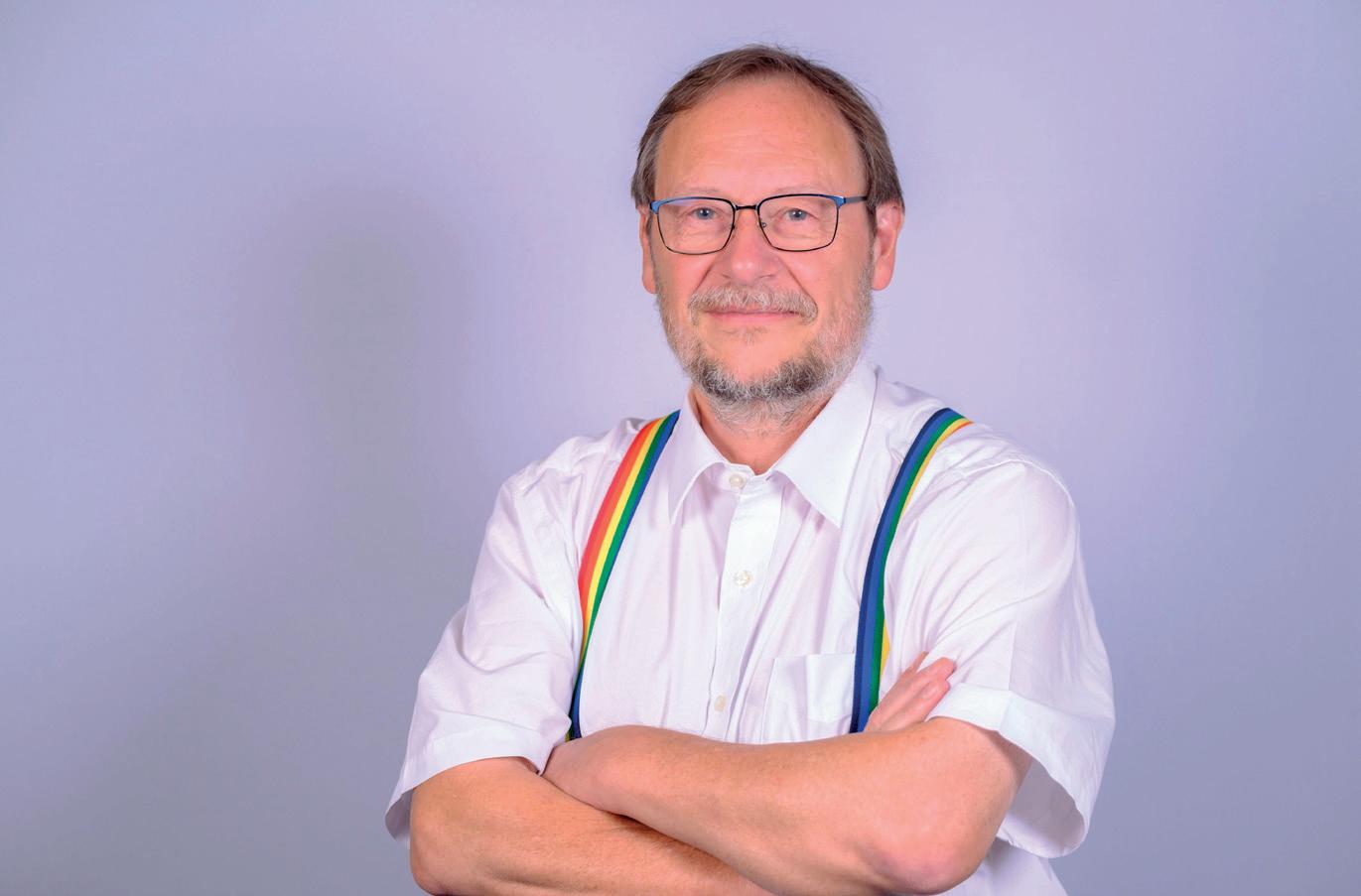
It has now been just over two years since I took on the role of BMA council chair, so it felt like a reasonable time to reflect on what we have achieved so far – and the challenges we still face looking forward.
As a natural introvert, there are many aspects of the job which have felt unnatural but I have loved standing up for doctors and stepping outside my comfort zone. I believe we (the leadership team I serve alongside is incredibly talented and we work very much as a team) have changed expectations of the BMA, delivering unprecedented strike action and for example, in our monumental work as a core participant of the COVID inquiry.
Our national successes must match the expectations of an increasing grassroots membership; there is much yet to do, however, particularly around medical associate professions, the sustainability of general practice and delivering a ‘no-blame’ culture in the NHS.
In this edition of the magazine, we publish one of our most detailed and revelatory long-read features to date. Our investigation into the mental health trust which the Care Quality Commission criticised for its role in the care of Nottingham attacks perpetrator Valdo Calocane reveals a story of repeated failure – including years of concerns raised but lessons left unlearned, enduring fear about patient care and safety, and major questions for culture and leadership and a trust which is locked in a state of ‘anxiety’ and ‘panic’. Mental health services across the country are struggling with services as stretched as they have ever been, but this investigation – contributed to by many doctors and other professionals bravely speaking out – also raises serious questions about culture, leadership and patient care in one trust.
Also in this issue we showcase the BMA equality, diversity and inclusion advisory group, cover the Save Our Surgeries campaign in the Welsh Senedd –warning that the NHS will collapse if general practice isn’t rescued – and discuss racial health inequalities, patients falling through the cracks, and the importance of the patient voice with author and London consultant in sexual health and HIV medicine Rageshri Dhairyawan.
The packed August edition of The Doctor contains an explainer about possible GP industrial action in England and a feature looking at the English junior doctor pay offer with BMA junior doctors committee co-chairs Rob Laurenson and Vivek Trivedi, who describe the offer as a ‘step in the right direction’. Those steps, we take together, in re-establishing the value of doctors’ unique skills and expertise.

Keep in touch with the BMA online at instagram.com/thebma twitter.com/TheBMA

GPs in England have overwhelmingly backed calls for collective action, in response to their rejected national contract terms.
More than 98 per cent supported collective action, on a turnout of 68 per cent. The BMA is now calling on them to take action as it best fi ts their practice.
The BMA is encouraging practices to choose from a list of 10 actions, and practices can implement as few or as many as they think appropriate. They include limiting daily patient contacts to the recommended safe maximum of 25, withdrawing permission for data-sharing agreements that are not related to direct care, and ceasing to ration referrals, investigations and admissions.
The ballot result comes at a time when GP practices are facing ever greater pressure as a result of patient demand, despite only being allocated 6 per cent of the NHS budget in guaranteed funding.
BMA GPs committee England chair Katie BramallStainer said the vote demonstrated many GPs were ‘at the end of their tether’ and working in a general practice service that was ‘being broken’.
She said: ‘We had a huge response to this ballot, and the results are clear – GPs are at the end of their tether. This is an act of desperation. For too long, we’ve been unable to provide the care we want to. We are witnessing general practice being broken. The era of the family doctor has been wiped out by recent consecutive governments and our patients are suffering as a result.
‘There have been countless opportunities to address the funding crisis in general practice, and despite almost 100 per cent of GPs voting to reject the 2024/25 contract earlier this year, still nothing was done.’
We’ve launched the first dedicated website for our content, at thedoctor.bma.org.uk . We are encouraging members to opt out of receiving the printed magazine by logging into the BMA website and adjusting your preferences. At the end of this year, for cost and environmental reasons, The Doctor will be fully digital, and the print edition will no longer be sent.
thedoctor.bma.org.uk
BRAMALLSTAINER: GPs at the end of their tether

She added: ‘We understand that the new Government has inherited a broken NHS, and we’ve had some positive conversations with the new health secretary about the situation in general practice.
‘The DDRB award is a small step in the right direction but we still have hundreds of millions less resource to run our practices compared to even fi ve years ago. Practices are still closing, so we have no choice but to move ahead with collective action to protect our practices, and our patients.’
GPC England has emphasised its willingness to work with NHS England and the Department of Health in fi nding a way forward in addressing dissatisfaction with general medical services contract changes and poor working conditions and pressures facing doctors in primary care.
Dr Bramall-Stainer said that, far from closing doors to patients, collective action measures would allow practices to remain safe and operational while seeking a long-term solution.
She said: ‘This will not be a “big bang”. It will be a slow burn. It’s likely that impact may not be felt for some time. We hope this will give the new Government time to consider our proposed solutions including fi xing our contract once and for all.
‘General practice should be the front door of the NHS, not the doormat. We don’t want to have to take this next step but must if we’re to stop our services from collapsing completely. A key Labour manifesto promise was to bring back the family doctor, and we look forward to making sure that can become a reality as soon as possible.’
More detail on the GP collective action: bma.org.uk/gpcontract
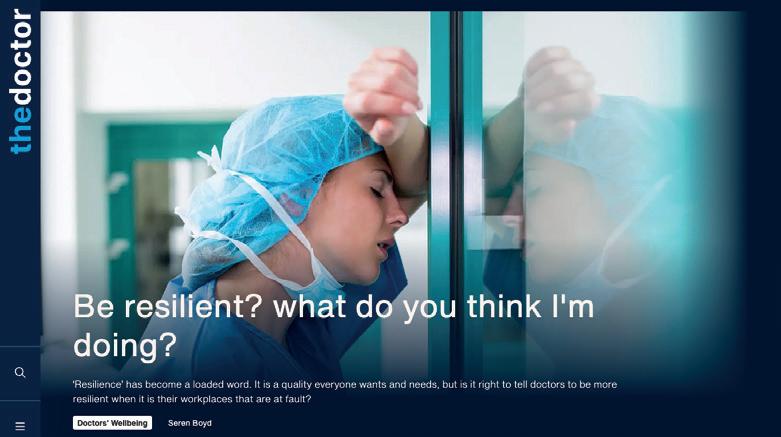
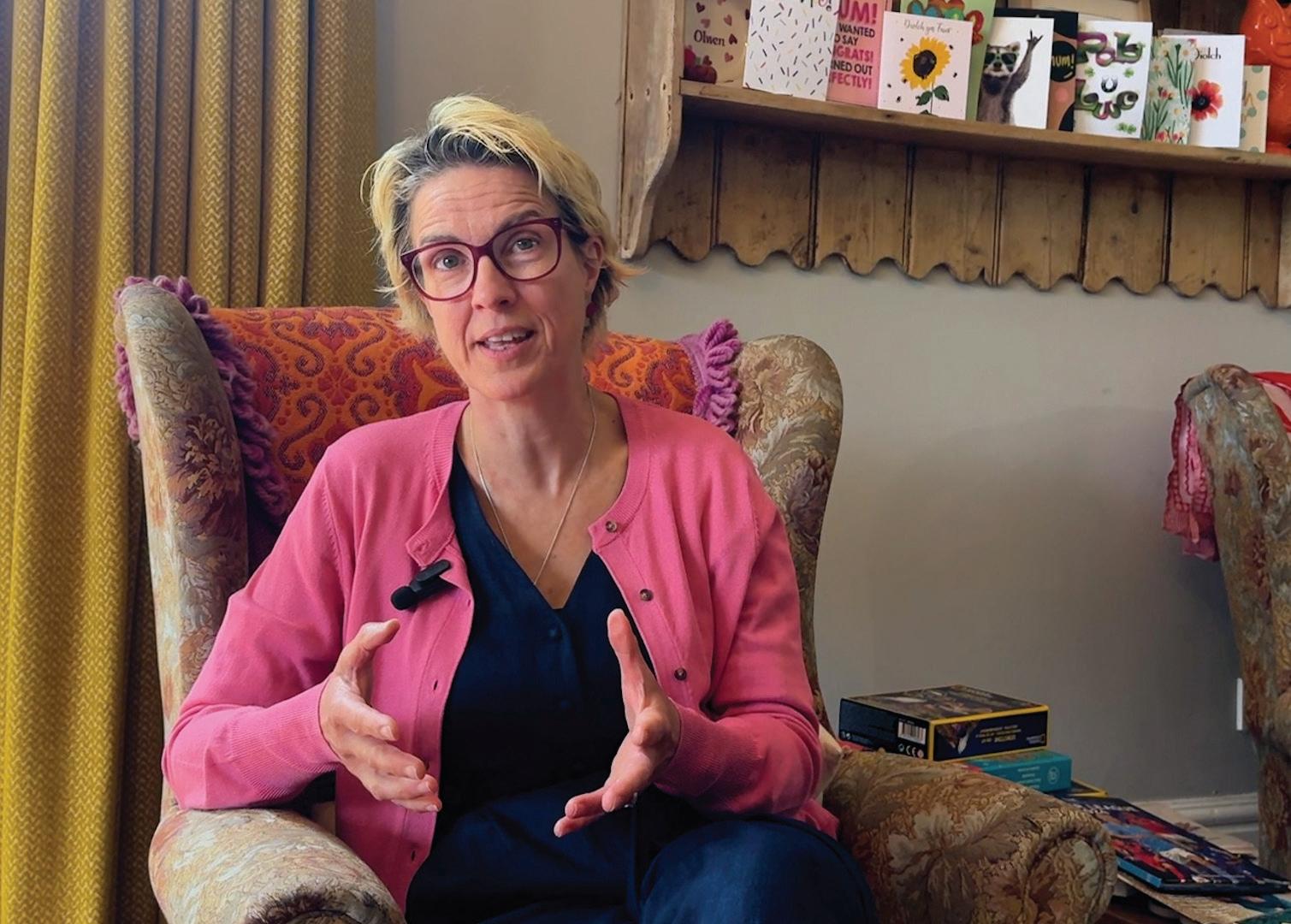
91 per cent of GPs feel unable to meet patient demand, a survey finds, as BMA Wales launches the second phase of a campaign to aid primary care. By Jennifer Trueland
‘If general practice falls, the rest of the NHS will follow.’
That’s the stark warning from Gareth Oelmann, chair of the BMA Wales GPs committee.
As Wales loses its one hundredth GP practice since 2012, he is calling for an urgent rescue package to prevent more practices from closing their doors, putting further pressure on a system already creaking.
‘GPs from across Wales have shared their experiences with me, and we are all united in our fears about the future of general practice,’ says Dr Oelmann. ‘GPs have told me
about the impact on their own health and wellbeing, and their huge concerns for their patients. It’s heartbreaking.’
Dr Oelmann was speaking as BMA Cymru Wales launched the second phase of its Save Our Surgeries campaign in the Senedd last month, and revealed the results of a survey which paints a shocking picture of the state of general practice.
The survey shows that 91 per cent of GPs in Wales feel they are routinely unable to meet patient demand owing to unsustainably high workloads affecting the availability of appointments,
‘I’m afraid without a fairer portion of NHS funding, the situxation is grave’
while 87 per cent fear rising workloads are affecting patient safety.
With the loss of 100 surgeries, GPs are now seeing up to 35 per cent more patients each, causing burnout and forcing GPs to cut their hours to less than full-time just to survive on a personal level. More than half of GP partners are planning to leave in the next three years, and three in 10 salaried GPs intend to work less than full-time.
The vast majority (80 per cent) of GPs also expressed great concern about the financial viability
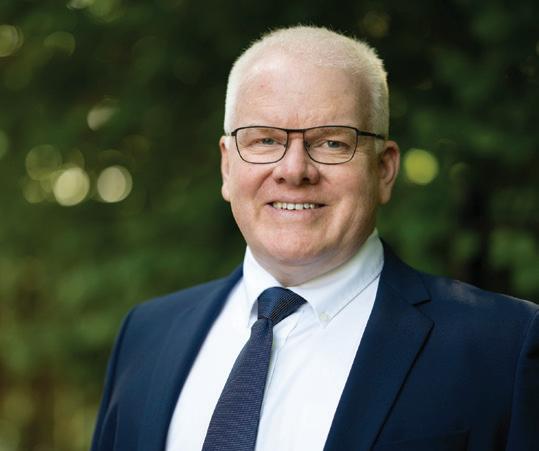
of their practices – something GPC Wales believes is a direct result of sustained underinvestment. Only 6.1 per cent of the NHS Wales budget is invested directly into general medical services, down from 8.7 per cent in 2005/06.
Grave warning
The Save Our Surgeries campaign is calling for a fairer portion of the NHS budget, and for safeguards to protect GPs and patients including a national maximum standard of patients per day. It also wants a workforce strategy to improve retention and recruitment of GPs and measures to address staff wellbeing.
‘With 95 per cent of GP respondents to the survey telling us they feel negatively about the future of the service, and some only giving it a year to survive, inaction is not an option,’ says Dr Oelmann.
Keziah Maizey, a GP partner in north Cardiff, says the level of demand on services has never been higher – and that the nature of care is more complex as patients experience longer waiting lists in secondary care.
She describes 12-hour working days with no break, leaving her ‘absolutely done for’, and concerned with the effect tiredness could have on patient safety. She also points to financial concerns for her practice resulting from last
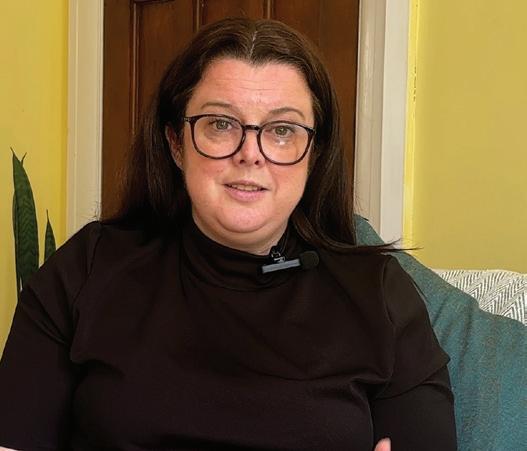
year’s below-inflation uplift for general practice in Wales.
‘Despite having a great team of partners, doctors and practice staff the situation with funding feels so precarious in terms of resources and what we can deliver and yet demand rises and the level of care becomes more complex; general practice really is on a knife edge now.’
Llinos Roberts and Richard Brown were forced to hand back the keys to their partnership at the Tumble practice in Carmarthenshire where Dr Roberts had been a partner for 12 years. Successive attempts to recruit partners and salaried GPs failed, meaning the practice was no longer sustainable.
‘For the last few years there were only three partners when we had previously been a stable six-partner practice. This meant working long hours trying to offer the best possible care for our patients,’ Dr Roberts says.
‘Sadly, we had to make the difficult decision to give notice on the partnership. This decision was not taken lightly and caused considerable stress, worry and guilt, but ultimately, we felt we had no choice. We knew that we were delivering a good service for our patients but without a secure future we just couldn’t see a sustainable solution.’
A Welsh Government
spokesperson said: ‘General practice plays an incredibly important role in the health service and is highly valued by the public and by us. We recognise the pressure GPs face and have heard the strength of feeling from the Save Our Surgeries campaign. We are investing in new ways for people to access primary care services, including community pharmacy and the 111 helpline, to help relieve some of that pressure.’
‘Without a secure future we just couldn’t see a sustainable solution’
The Welsh Government has admitted to ‘another disappointing set of NHS performance figures’ as hospital waiting lists reached an all-time high. In May 2024 there were 787,900 open patient pathways (this is the description because a person might be waiting for more than one treatment), with the proportion waiting less than six months falling to 54.8 per cent. Just under 22,500 had been waiting more than two years.
A Welsh Government spokesperson said the then cabinet secretary for health and social care (and now first minister) Eluned Morgan had made it clear to health boards that she expects to see sustained progress to reduce long waits and waiting times for treatments. ‘She will be making it clear to the leadership of health boards that the situation is not acceptable and must improve.’

Doctors are the lifeblood of the BMA, and with such a vast and diverse membership, placing equality and inclusion at the heart of everything the association does is vital for many reasons.
Just as the NHS workforce strives to represent and reflect the patients and society it cares for, the BMA equality, diversity and inclusion advisory group exists to ensure that the same is true for the association.
Made up of more than a dozen BMA members drawn from across the UK and all branches of practice, the role and remit of the group is to champion EDI (equality, diversity and inclusion) across the association.
Meeting regularly throughout the year, the group aims to shape work on EDI for members and staff and provide
expert knowledge, advice and guidance on EDI in all aspects of the association’s work.
The advisory group also consults with the BMA staff-led equality, inclusion and culture team, providing a perspective on association policy work to reflect members’ experiences.
The group has contributed to a variety of important pieces of work conducted by the BMA in recent years, including surveys and reports examining SOGI (sexual orientation and gender identity), sexism and sexual harassment, and racism in medicine.
These landmark pieces of work have not only served as
The BMA equality, diversity and inclusion advisory group offers expert insights to the association so it can change society to give marginalised groups a voice.
By Tim Tonkin
a means of giving doctors who might otherwise go unheard a voice but have ultimately informed the association’s priorities as an organisation or been incorporated into association policy. Members of the group have served as visible role models by sharing their experiences through projects such as the library of reasonable adjustment case studies, which was conceived through discussions within the group about how to develop tools to support disabled doctors.
‘There is such a breadth of expertise and insight from lived experiences’
Belfast internal medicine specialty trainee 3 Ciara Greer (she/her) joined the advisory group in part because of her role as EDI officer for the Association of LGBTQ+ Doctors and Dentists. She says being part of the advisory group has allowed her to contribute her own lived experience on issues of importance to her such as LGBTQ+ equality, women’s rights and issues faced by doctors based in Northern Ireland.
‘Within the advisory group there is such a breadth of expertise and insight from lived experiences,’ explains Latifa Patel, who has headed up the advisory group for the past three years.
‘There’s such an open culture to learning, to understanding and providing constructive criticism telling the BMA what we haven’t done right and how we can support our members better.’
While recent years have seen efforts across many parts of society aimed at improving diversity within representation and pressing for greater equality and equity, Dr Patel admits the important nature of the advisory group’s work is not immediately obvious to all.
She says that, for some colleagues in the medical profession and particularly for those in positions of power, either in the Government or the wider health service, being able to present research and data makes an argument for change all the more compelling.
‘As the BMA, we are often asked “why have we got a report on racism in medicine? Why have we got one looking at disabled doctors?”,’ explains Dr Patel.
Experience helps
It was through her involvement in the early discussions about the scope of the SOGI in medicine survey that ‘queer’ was included as a choice of identity for participants.
‘I think it’s important that people from communities are able to contribute insights that are derived from their lived experience,’ explains Dr Greer. ‘Even if you have the best of intentions and think you know what a particular community wants, if you don’t have voices from those communities in the room, you could end up missing something really valuable.
‘Intersectionality is so important and having this group of people who come from all different walks of life supporting each other is brilliant.’
While Dr Patel is under no illusions as to the scale of the many challenges to improving equality in the BMA and the medical profession and NHS more widely, she believes the work of her and her colleagues can hopefully change perspectives as much as it can implement change itself.
‘If you don’t promote equality in the workforce you are at risk of losing valuable colleagues’
‘The reason why we’re investing money and resources into this is because we know there’s a problem but sometimes we literally need to be able to say to those in power, “these are the facts in black and white”.
‘Undertaking research also allows us to support members by tracking and recording changes over time in the issues that they face.’
Unlike other BMA committees, members of the advisory group are appointed to their positions and serve two terms.
‘If your motivation isn’t fairness, isn’t equality and equity and doing the right thing, then do it because of productivity, for patients, for recruitment and retention. You need to prioritise equality, equity, diversity and inclusion in your workforce,’ Dr Patel says. ‘If you do not promote equality, and equity and inclusion in your workforce, you are at risk of losing good, valuable colleagues which we need.’
To find out more about the work of the advisory group, go to bma.org.uk/edi
Two years ago BMA council chair Phil Banfield took on his role with a rallying call to doctors: ‘Start to believe your future is in your own hands. The BMA is here to help you achieve what you thought was unachievable.’ Unprecedented industrial action, being a core participant in the national COVID inquiry and long-lens intrusions from national newspapers followed. Peter Blackburn speaks to Professor Banfield about how it has gone so far and what comes next
‘Ilove it. I think I was made to be the person who stands up against things when they are wrong.’
BMA council chair Phil Banfield is reflecting on two years in a role in which he freely admits he wasn’t sure how he would cope or if he was the right person when elected.
‘I’m shy, I’m generally an introvert – the idea of standing outside number 10 [Downing Street] with a megaphone isn’t normal for me,’ he says.
the membership and turning around the finances of the BMA, and changing cultures and behaviour in an organisation which had been in the spotlight for the wrong reasons.
‘The idea of standing outside number 10 with a megaphone isn’t normal for me’
It was a daunting task. When The Doctor sat down with Professor Banfield in the garden of his house near Rhyl in North Wales two years ago, the in tray was bulging and none of the issues on the to-do list were easy fixes. Among the most pressing at the top of that list were preparations for serious and significant industrial action, ensuring ‘history isn’t re-written’ by being a core participant at the national COVID inquiry, growing
The workload which comes with that sort of list is brutal. ‘One thing I heard before I was elected was that my time would no longer be my own,’ Professor Banfield, who has worked as an obstetrics and gynaecology consultant for the past 29 years, says. It wasn’t said in jest. ‘It’s like being on call for a labour ward permanently – 24 hours a day, seven days a week,’ he adds.
The week The Doctor speaks to Professor Banfield he gave up his weekend to make a 500-mile round trip from his home to London to appear on Trevor Phillips’ Sunday Sky programme, only to be bumped following the attempted assassination of US presidential candidate Donald Trump. It has been busy and unpredictable – ‘at
BANFIELD: ‘I think I was made to be the person who stands up against things when they are wrong’
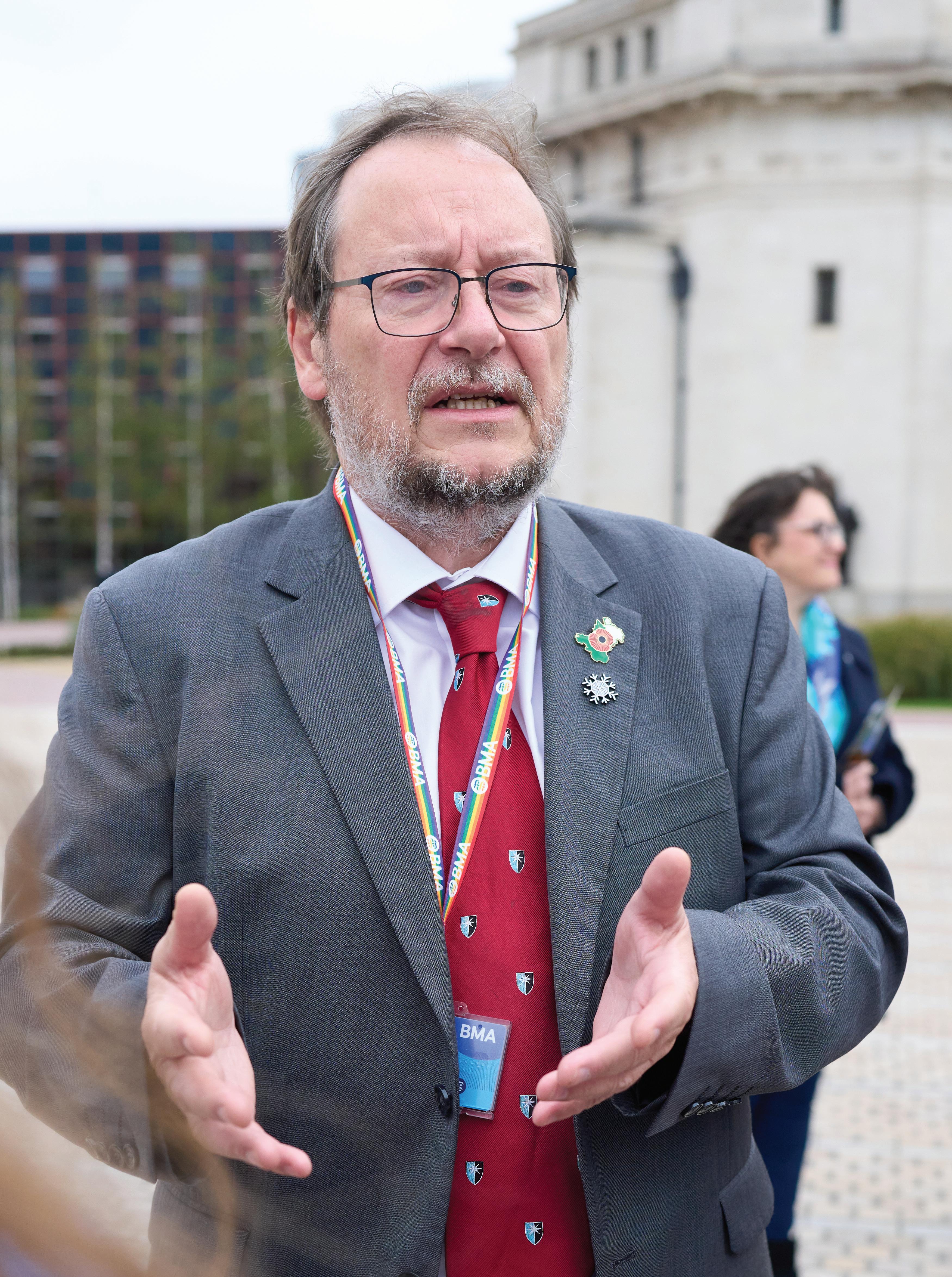
‘This Government will be judged by what it delivers for us’
PAY CAMPAIGN:
Professor Banfield with an advertisement in support of fair pay for junior doctors
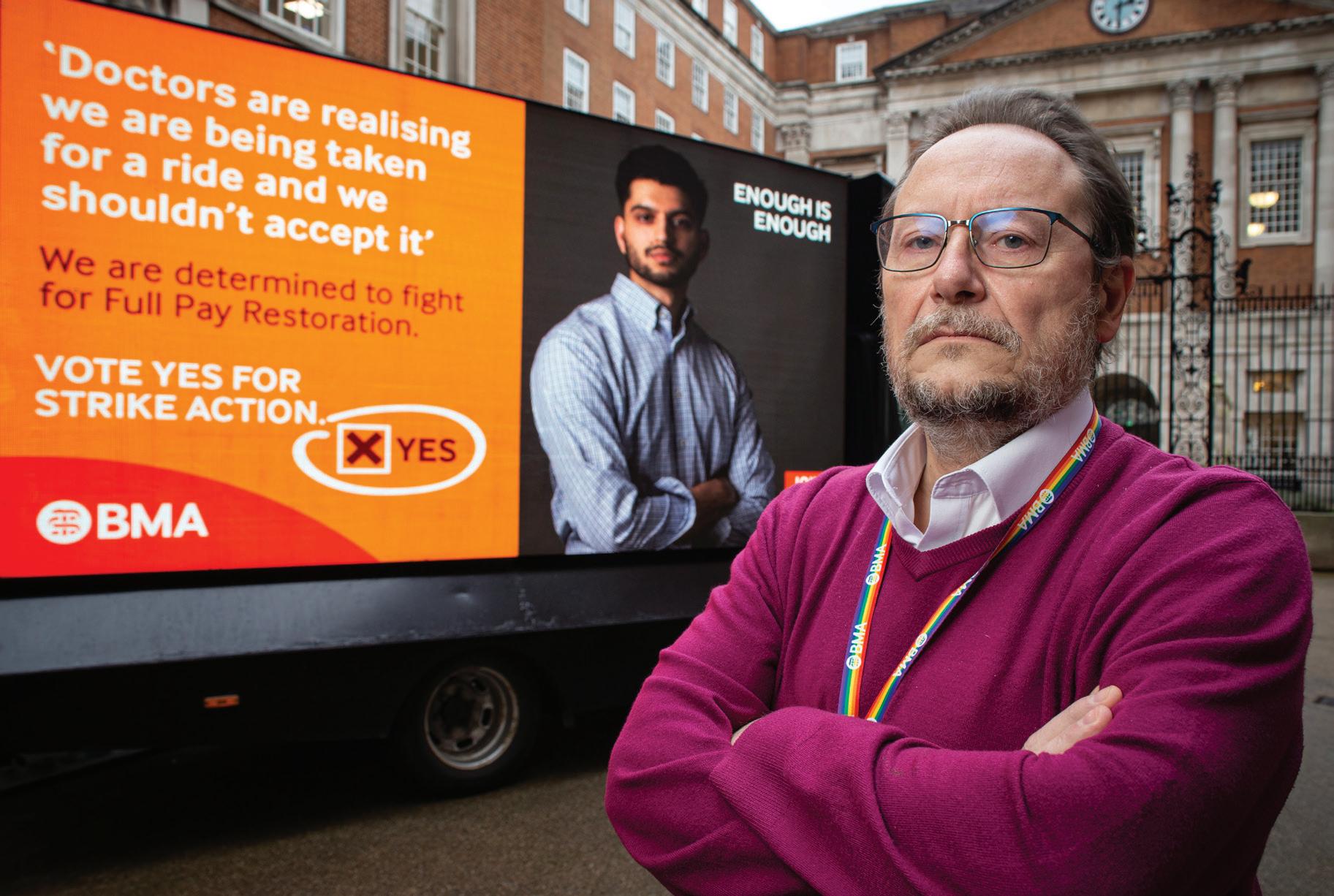
‘It is insane the number of decisions GPs have to make and the amount of risk they manage’
breakneck speed’ – for the entire two-year period with the constant churn of the news cycle and massive events from attending the Queen’s funeral to giving evidence under oath at the COVID inquiry on top of the day-to-day priorities and demands of being BMA chair.
On that day-to-day work, Professor Banfield feels there is a ‘long way to go’ but that ‘even the most cynical critic would admit we have delivered on the BMA being more of a trade union’. It’s hard to argue – across the UK many branches of practice have taken industrial action, with consultants agreeing a new pay deal and junior doctors staging 11 walk-outs. ‘Unprecedented ballots aren’t an accident,’ Professor Banfield, who grew up in Crawley, studied medicine in London and has since worked in hospitals across the country from East Anglia to North Wales, says. ‘It is sheer knowledge, expertise, and graft from staff and members.’
For the vast majority of his time in charge, the BMA has been negotiating with a government who often wouldn’t even countenance conversations, let alone action. ‘They didn’t really seem to care,’ Professor Banfield says. But, following the general election the new Labour Government has signalled some intent to be more collegiate and relationships have improved – including semi-
regular conversations between Professor Banfield and health secretary Wes Streeting. Professor Banfield isn’t getting carried away though – until change is delivered it is largely empty niceties. ‘If we now have a government that smiles at us and talks to us but still says no, there’s no money, I still don’t have the outcome I need. This Government will be judged by what it delivers for us.’
Professor Banfield feels Mr Streeting’s declaration that the ‘NHS is broken’ means he has adopted the narrative the BMA has been urging governments to accept for some years and that the desperate requirement to bring down the NHS waiting list and unlock the economic activity that could provide means doctors are in a strong position to win the pay and conditions they deserve.
Away from industrial action and negotiations there has been huge work in many other areas, not least in challenging the increasing use of MAPs (medical associate professions) and the ‘blurred lines’ of their scope of practice and regulation. It has meant picking fights with the GMC and the royal medical colleges, but Professor Banfield feels vindicated in doing so, particularly after meeting the parents of Emily Chesterton who tragically died aged 30 after two appointments with, and misdiagnosis by, a physician associate she believed was a GP.
‘When push comes to shove you need doctors to ensure patient safety,’ Professor Banfield says. ‘It’s hugely disappointing to clash over this but when they asked me why this is an issue for us I said: “I’m listening to 196,000 grassroots doctors. It would help if you listened too.”’
There has also been a relentless focus on, and support for, general practice. For Professor Banfield, who wanted to be a doctor from the age of eight and is now married to a GP, it isn’t empty words to describe general practice as the bedrock of the NHS. ‘It’s not lip service,’ he says. ‘My generation of doctors has no idea what general practice is actually like now. It bears no resemblance to when I qualified. It is insane the number of decisions they have to make and the amount of risk they manage.’
Professor Banfield cites GPs as having to bear the brunt of an increasingly unhealthy and unequal society and astronomical waiting lists. He also raises the unfairness of GP practices being forced to close over relatively small debts or clawbacks while secondary care is bailed out. Addressing the sustainability of general practice will continue to be, he says, one of the main priorities of the association.
There have been downsides to the role. A ‘threatening’ approach from a national newspaper taking long-lens photos of his house while he was away from home was ‘horrible’. But, overall, the media attention has been less brutal than feared and Professor Banfield has found himself shrugging off the angry headlines from right-wing magazines and newspapers, content that they are a barometer showing he is doing his job properly.
Overall, it’s been an ‘amazing’ experience and the moments where colleagues he has never met in his hospital corridors or elsewhere say a quiet ‘thank you’ are ‘reward enough’, he says.
Professor Banfield is now in his final year as council chair but says he will seek a further year
at the next BMA annual representative meeting to finish the job and mirror the four-year term the current council is serving.
It is clear Professor Banfield has no intention of decreasing the pace of work. Alongside the significant continuing battles around pay, MAPs, sustainability of general practice and a host of other things, he is looking to make a major difference in areas he has not yet been able to address. The items on top of that list, he tells The Doctor, are ensuring whistleblowers have better support from the BMA, working toward a patient-safety focused ‘no blame’ culture in workplaces, and addressing bias and discrimination in the health service and how doctors are treated by the GMC. He also wants to take action to avert the ‘dumbing down’ of medical training.
‘I want to make sure we deliver a BMA that people feel is different,’ he says. ‘We’ve done a lot in the first two years and that makes me confident we can do the rest in the next two years.’
Professor Banfield adds: ‘If we are going to take on our problems why just take on one? We might as well try to address all of them.’
‘When push
comes to shove you need doctors to ensure patient safety’
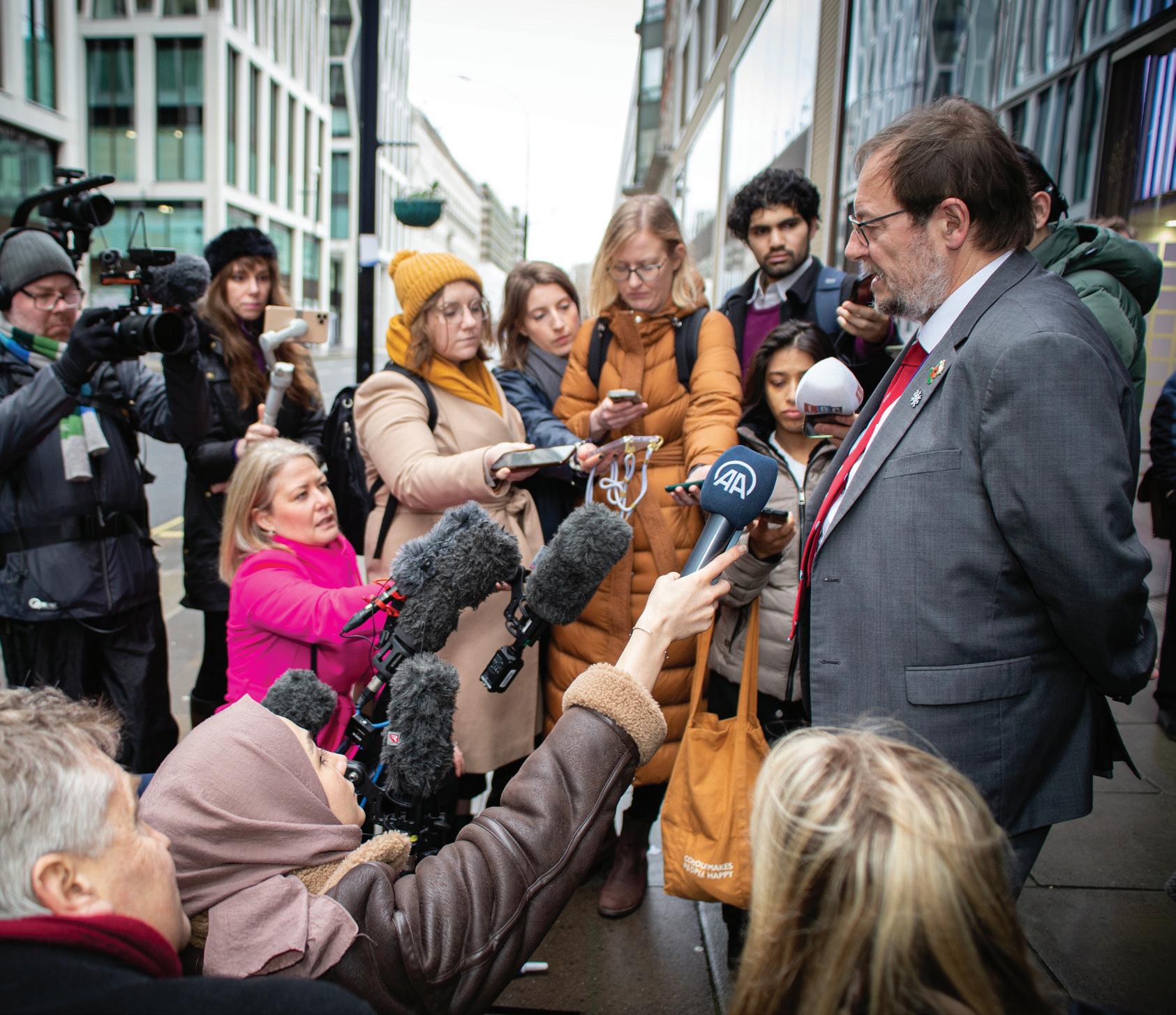

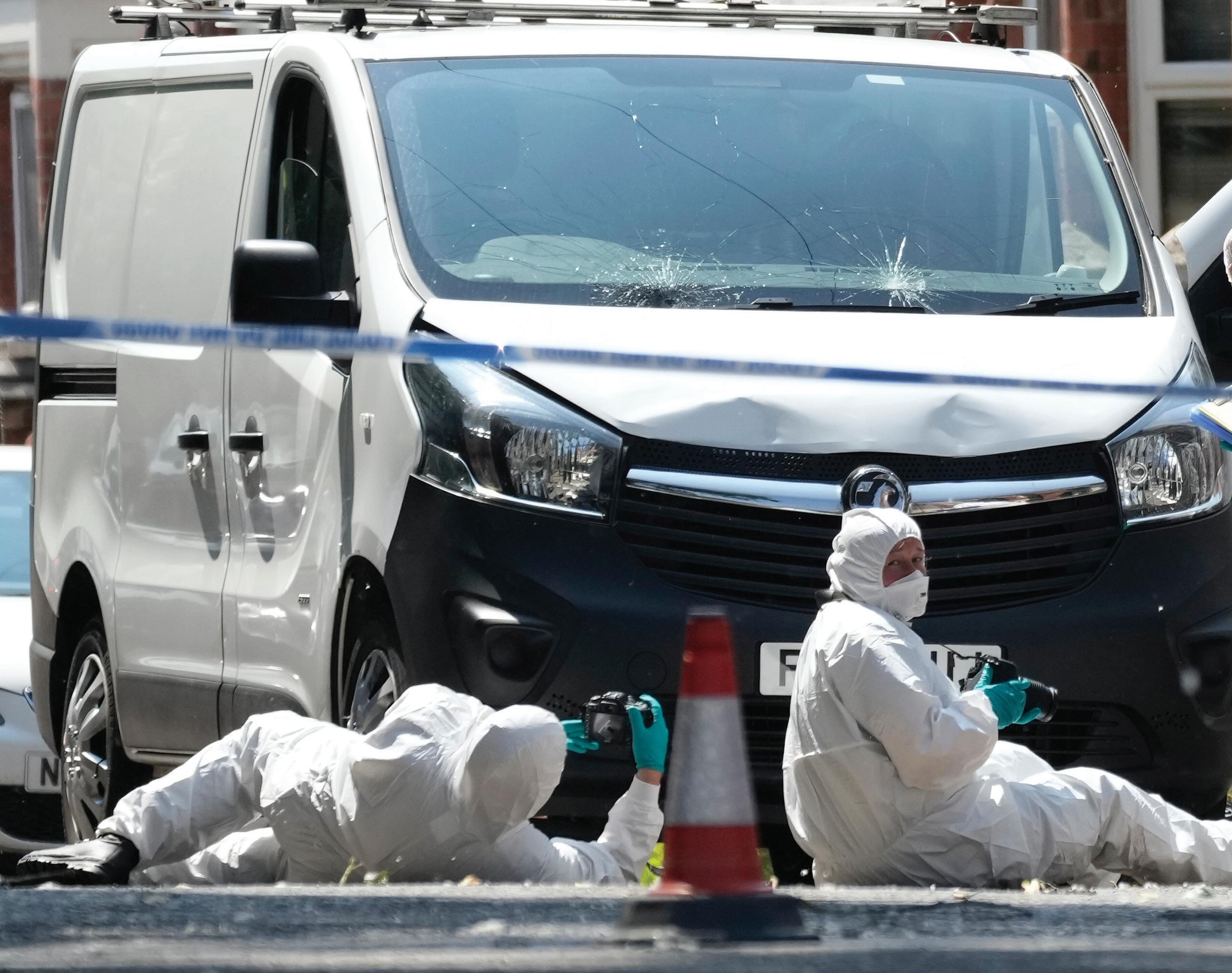




A review following the Nottingham attacks in which Valdo Calocane killed three people in June last year has found a series of errors, omissions and misjudgements in his care. An investigation by Peter Blackburn finds a trust locked in a state of ‘anxiety’ and ‘panic’
When Sally Baylis met the staff responsible for looking after her husband she was assuming his death was just ‘unfortunate’ and simply wanted to know how he had been in the hours leading to his passing – but their ‘defensive’ attitudes quickly revealed his care had been ‘a mess’.
Ken Baylis, 67, was an inpatient at Millbrook mental health unit in Sutton-in-Ashfield and had been allowed to take unescorted leave from the unit, without the knowledge of his family. He stepped in front of a bus and died that day – 23 January 2023.
Despite Mr Baylis’ history of depression and repeated – serious and escalating – suicide attempts during the 14 months before his death, staff had failed to recognise the risk of him taking his own life.
The coroner, Elizabeth Didcock, issued a prevention of future deaths report to Nottinghamshire Healthcare NHS Foundation Trust following an inquest into his death in January this year. She described a failure to recognise
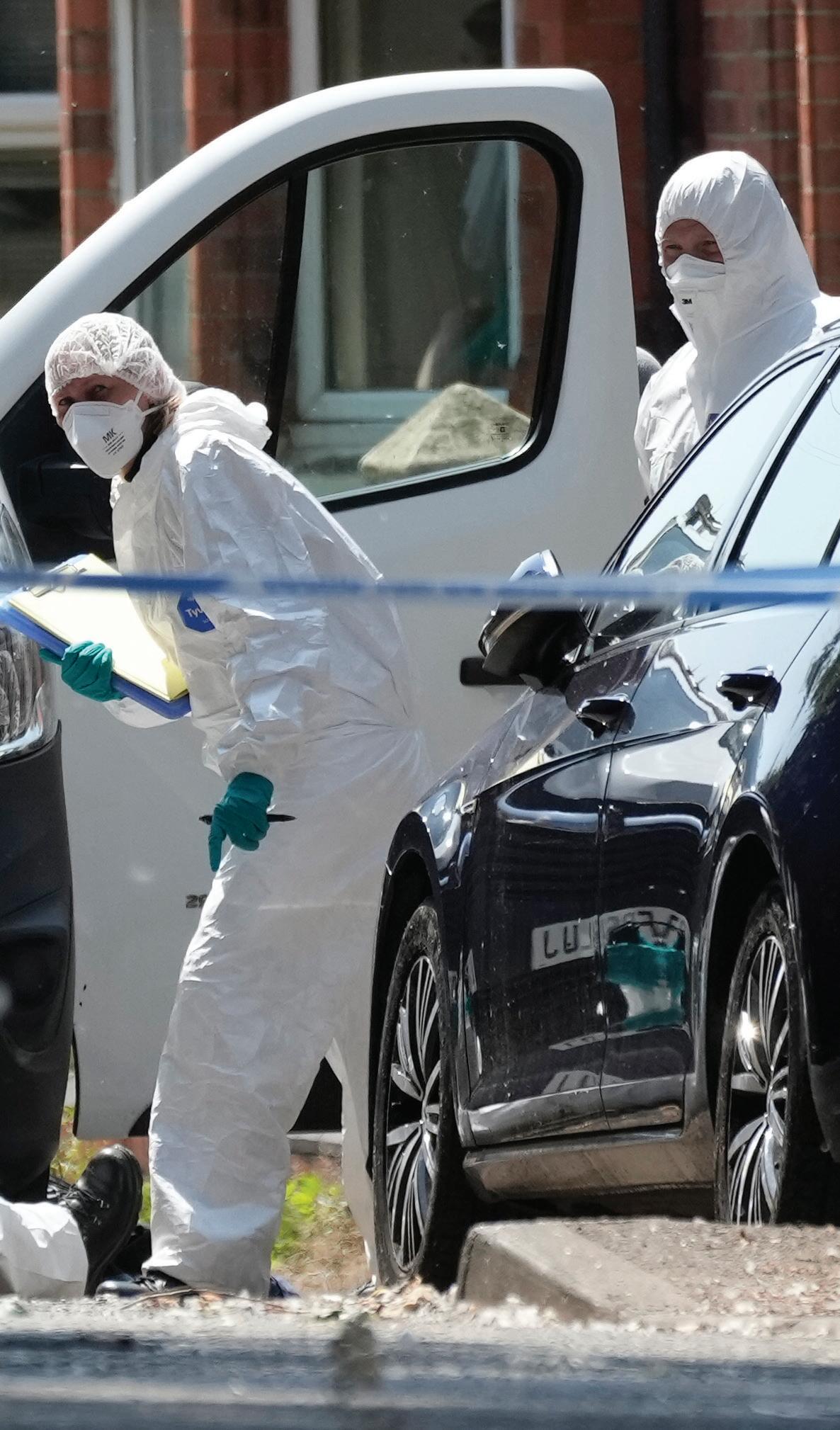
FORENSICS:
Police investigate a van potentially connected with the killing of three people in Nottingham in June last year
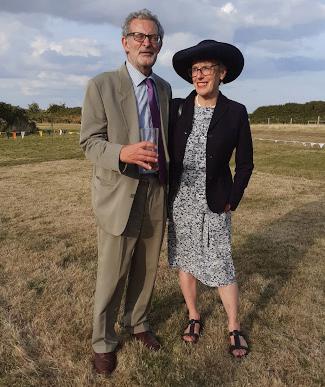
A trust letter responding to the coroner’s concerns outlined policy changes including around named nurses, regular contact with families, beefed up risk assessments, refresher training for staff and an audit of serious incident processes in response to the issues raised. It describes Mr Baylis’ death as ‘sad’ and ends with the hope that the family and coroner are ‘reassured’ by actions taken. Ms Baylis feels the lack of patient and family-centred care she and her husband experienced is underlined by such a procedure-heavy response and describes ‘basic humanity’ as getting lost somewhere among the policies and box-ticking.
The failures in care outlined in Mr Baylis’ case appear to be familiar themes for the trust, which has been under the spotlight for months following the Nottingham attacks.
a building picture of increasing risk of suicide, a failure to involve his family in planning, an inadequate risk assessment, and unchallenged reporting of Mr Baylis’ apparent lack of suicidal thoughts. She said these ‘omissions in care’ made a contribution to his death.
Mr Baylis was an avid music-lover whose impressive vinyl collection still sits proudly in a shelving unit in the room amid clearouts and an upcoming house move. His wife describes him as a one-off, defined by his sense of humour – someone who was ‘such fun to be around’. The couple met at Kent University, producing radio plays for the student station together, and had four children. Ken worked in HR and Sally was the reverend at St Paul’s Church in Daybrook, just north of Nottingham city centre. They were married for 40 years and Ken’s funeral was ‘standing room only’.
The first two parts of a rapid review ordered by former health secretary Victoria Atkins were published by the CQC in March this year and found ‘enduring areas of concern’, including failures to manage demand for services, access to care, staffing and issues of leadership.
‘We’ve almost given up and lost hope that there will be any change. We’ve got used to services being inaccessible’
The final part of the review – published on 13 August – reveals a catalogue of errors from the trust including inconsistent approaches to risk assessment, poor care planning and engagement, and discharging Calocane back to his GP with insufficient consideration of the risks given the evidence suggested he would ‘relapse into distressing symptoms and potentially aggressive behaviour’. The CQC report said it had not found ‘widespread patterns’ within 10 benchmarking cases used for comparison




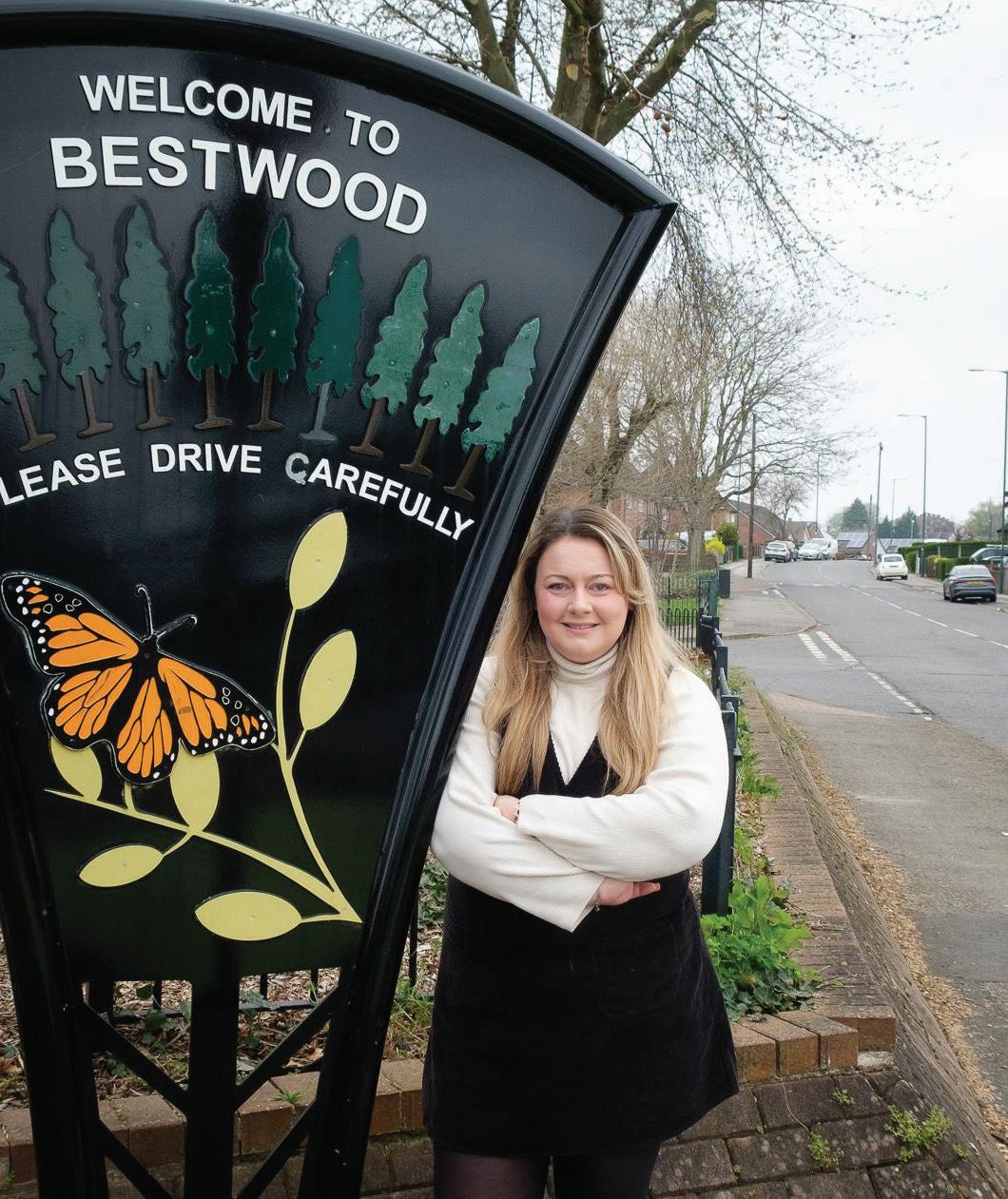
The themes are clear in a series of prevention of future deaths reports from coroners. In 2017 and 2020 concerns were raised about failures to engage with the families of patients. One of the cases raised concerns about inadequate risk assessments.
In 2020 one coronial report said the trust had included ‘many false and inaccurate statements’ in its investigation into the care of a patient who died. The trust was also criticised for one of its crisis teams gatekeeping services and considering their role to be ‘limited to avoiding the need for patients to receive inpatient treatment’.
In 2021, a coroner criticised the rejection of referrals, a decision to discharge without involving or communicating to the patient, lack of care coordination, and missed opportunities to intervene before a patient’s overdose – described as a ‘cry for help or to secure secondary mental health treatment’.
Last year, several prevention of future deaths reports were sent to the trust. In one case, concerns were raised about ‘limited risk assessment’ and ‘extremely limited family and carer involvement’. In another, issues including referrals being ‘repeatedly rejected’ were noted. In yet another, staff were found to have falsified records.
but that ‘many’ of the issues identified were consistent with problems found in the wider review of the quality of care and safety of services at the trust.
Chris Dzikiti, CQC’s interim chief inspector of healthcare, said: ‘While it is not possible to say that the devastating events of 13 June 2023 would not have taken place had Valdo Calocane received that support, what is clear is that the risk he presented to the public was not managed well and that opportunities to mitigate that risk were missed.’
An investigation by The Doctor has found that concerns about the trust’s services – many similar to those in the CQC fi ndings –have been raised repeatedly for several years and local experts say insuffi cient action has been taken by the trust, or organisations with oversight, and lessons are not being learned.
Earlier this year, coroners issued the same warning reports to the trust over failures around risk assessment and communication in one case and failures to respond to requests for help from a patient’s GP and poor engagement with family in another.
‘If you look at inquests, the themes are repeated over and over again,’ Nottingham GP Irfan Malik says. ‘We’ve almost given up and lost hope that there will be any change. We’ve got used to services being inaccessible and poor.’
‘It is clear that the risk [Valdo Calocane] presented to the public was not managed well’
The problems at the trust run deep. More than 30 members of staff at one of its main sites, Highbury Hospital, were suspended following reports earlier this year about serious misconduct including the falsification of mental health observations and maltreatment of patients.
Our investigation also highlights a panicked and anxious leadership and a culture where staff do not feel able to speak up.
New figures, obtained by The Doctor via the Freedom of Information Act, reveal the trust was issued with 11 prevention of future deaths reports – like that in Mr Baylis’ case – in 2023/24. In comparison, annual figures were between zero and three for the prior nine years. Regulators are also concerned about high numbers of serious incidents.
And Rampton Hospital at the very north of the county, which is run by the trust, is also in real trouble. The high security hospital, which houses serial killer Beverley Allitt among other violent offenders, was rated inadequate following inspections last year. The CQC no longer permits new admissions without express written permission.
Nottingham City Council health and adult social care scrutiny committee chair Georgia Power says the difficulties of running Rampton distract focus from the
provision of basic services elsewhere. One doctor says it had always been an obsession for managers as the local ‘jewel in the crown’. Councillor Power has called for it to be removed from the trust’s responsibilities.
The Doctor has reviewed a document produced by Councillor Power which details the committee’s interactions with the trust over more than four years. It shows repeated warnings about care and leadership – many of which are prominent in recent CQC reports. They included people waiting too long to access services, the lack of a ‘waiting well’ policy to support people in the meantime, and anecdotal evidence of suicide attempts due to difficulties accessing care. Alarm bells were also sounded about inequity in services and the gatekeeping of inpatient care.
Three years ago, Councillor Power says access to care was already a ‘systemic issue’. She says the trust said this was ‘unfair’ – and suggested their staff would consider not attending future meetings unless she apologised. Councillor Power refused and reminded the trust of the committee’s ability to require them to attend meetings. Councillor Power says she believes the trust views the committee as ‘a problem and an inconvenience’.
Dr Malik says GPs have struggled to access care for patients who are moderately or even severely unwell for years – with many patients ending up turning to the police or A&E in crisis as a result.
BICKNELL: Staffing worries are common
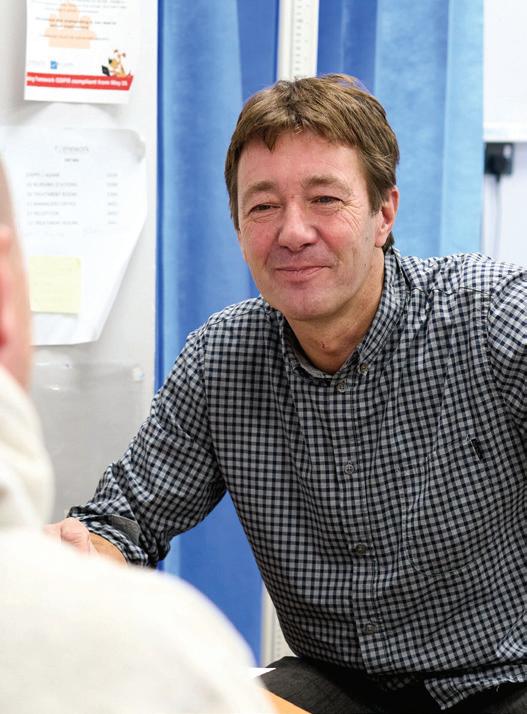
the side’ if they raise concerns. One doctor described a meeting where clinicians were told to raise their hand in front of colleagues and senior leaders if they had issues with the way things were being managed. And a local GP who works closely with mental health services staff are ‘reluctant to say anything too challenging’.
‘If you look at inquests, the themes are repeated over and over again’
One senior clinician working at the trust, whose identity we have protected to allow them to speak freely, tells The Doctor that complaints about access are regular and that new patients are at the bottom of a pile beneath many people known to services who need more help. They say support offered now has to be more ‘tightly managed’ and shorter in duration’ due to vast waiting lists and that quality of care is impacted.
The Doctor has been told it can be hard to find enough staff to cover helplines intended for people on waiting lists, going into crisis, or in need of medication with ‘all sorts of serious calls coming in’. Concerns have also been raised that the IAPT (now called ‘NHS Talking Therapies’) has seen an army of ‘cheaper therapists’ offering low-level support like ‘sleep strategies and managing emotions’ which will ‘make no difference to people with chronic problems’ leaving patients still in the system requiring more support.
That so many problems are still being echoed by regulators in 2024 raises serious questions about the leadership of the trust and the culture of the organisation.
One member of staff working within the trust describes an environment where they are viewed as a ‘thorn in
The senior clinician whose identity The Doctor has protected says senior leaders moved up the management ladder quickly at the trust without any serious external training and had become ‘hyper anxious’ in response to the CQC inspections and reports. They said there was an ingrained culture where clinical staff were not involved in decisions and that the response to CQC concerns was being dominated by reactive decisions focused on making areas of concern look better rather than genuine soul-searching.
Staff have told The Doctor they have been asked to correct more trivial, aesthetic, issues like tidying rooms or basic bits of maintenance to facilities. They also said resources and staff were being moved from one crucial area to a different one which inspectors criticised so the trust can be seen to address specific issues raised without thought for the consequences.
The senior clinician says: ‘It doesn’t matter that it’s leaving another hole elsewhere because this one is where the attention is.’
The sense of being rushed into solutions is pervasive. The senior clinician says a ‘waiting well’ phone call introduced to check-in on patients yet to be seen was unevidenced and they feared it would increase anxiety among both the patients receiving the call and the staff making given these patients need support but will remain waiting for it. They said: ‘If someone kills themselves we can say in evidence that we made the call and did our bit but if I was a legal representative I would say, “what makes you think doing




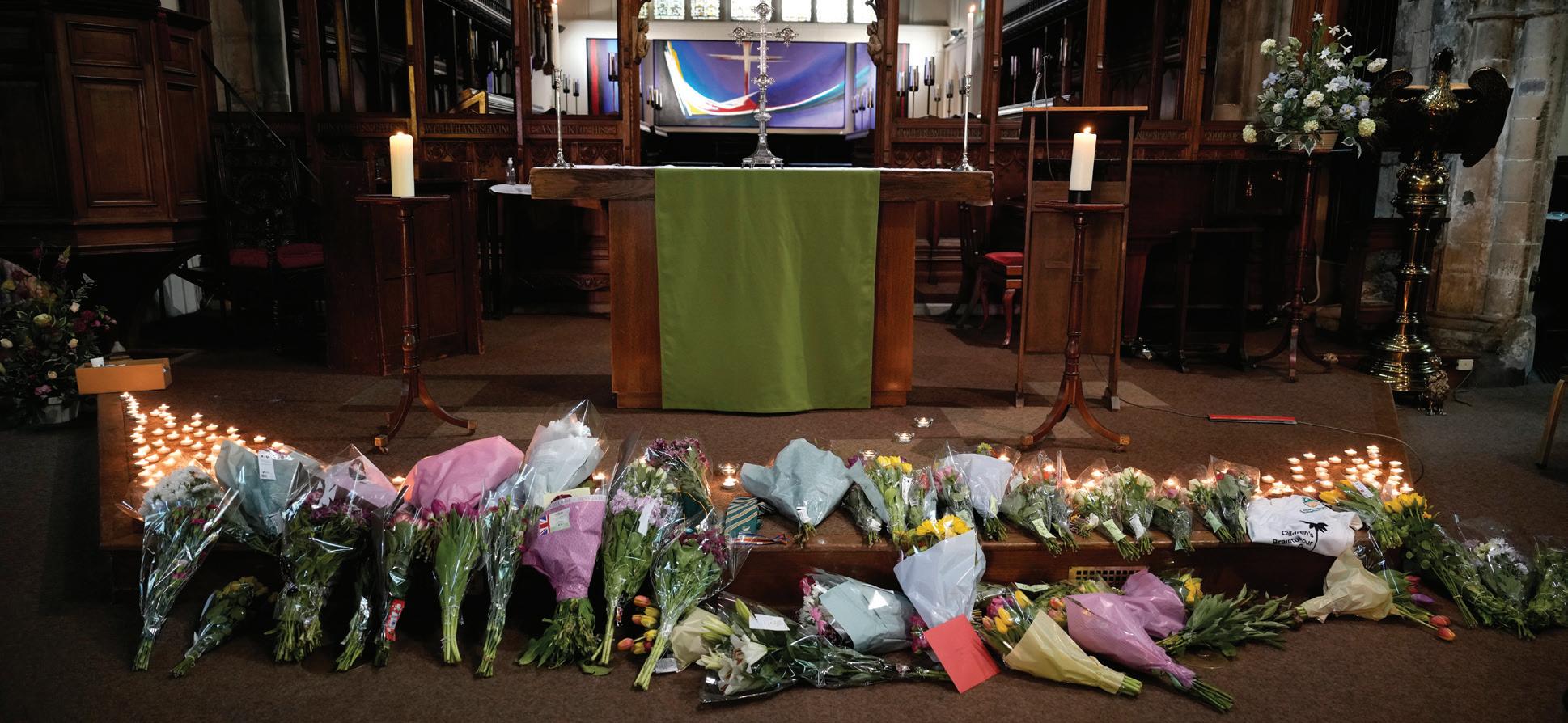





that call would make any good difference at all?”’
It speaks of an environment where what is best for patients might sometimes get lost. Recently retired consultant psychiatrist David Rhinds, who was employed by the trust, says ‘we hardly ever spoke about patients’ in meetings.
Nottinghamshire Healthcare tells The Doctor its ‘central priority’ was listening to the ideas and experiences of people who use and deliver services. It said senior leaders recognise the ‘need to bring about sustained change in the quality and safety of care’ and culture and have launched an improvement plan. It says it provides several ways for colleagues to provide feedback and challenge to leaders and welcomes the accountability provided by the health scrutiny committee. It listed improvements already made including increased contact with people waiting to be seen in the community, better alignment between teams to reduce waiting times and increased focus on risk management.
The lack of improvement has also led to questions about the role of the regulator and commissioners. Councillor Power says there isn’t visible enough leadership from either and is calling for much stronger holding of the trust to account locally and nationally.
Nottingham and Nottinghamshire ICB says ‘extensive governance arrangements, including oversight from the ICB’ have been put in place and ‘enhanced surveillance’ has been instigated around a ‘broad range’ of quality concerns and improvement plans. It says an improvement oversight and assurance group had been set up jointly with NHS England’s Midlands regional team to monitor the trust’s response to concerns. It also says it is holding regular meetings with the trust about immediate ‘safety challenges’ with accompanying monitoring dashboards in place, ICB representatives are attending the trust’s improvement board and a buddying system between Broadmoor, Ashworth and Rampton high-secure facilities set up to drive standards.
The CQC says it has undertaken 11 inspections of the trust since February 2020. It says there has been ‘ongoing oversight through engagement on a regular basis’ and that its action on Rampton Hospital shows it takes enforcement action when required. It says assessments of services will continue to ensure patients are safe and that NHS England has placed the trust into the highest level of national oversight including the appointment of an ‘experienced improvement director’.
There is little doubt wider pressures felt across the system nationally are having an impact.
Mental health services in England received a record five million referrals during 2023 – up 33 per cent from 2019. And the mental health workforce is not increasing at the required rate to meet current, or expected, demand. Since 2017 the number of children and young people in contact with NHS services has expanded at more than three-and-a-half times the pace of the psychiatric workforce. Vacancy rates for doctors and nurses working in mental health services sit at around 13.6 per cent and 14.8 per cent, respectively.
Dr Bicknell, who carries out Mental Health Act assessments in local services, says worries ‘about staffing levels’ on wards are common. And Dr Rhinds asks why anyone would want to join a workplace where resilience training is required to get through the day.
Dr Rhinds says cuts to bed numbers over the last 20 years have ‘come back to haunt’ the trust, too – with figures showing dramatic cuts across the country and many patients now sent miles away from home due to a lack of beds – often to expensive private facilities.
Funding is a constant issue, too. While there has been an increase in mental health funding, the proportion of NHS England budget spend on mental health has fallen since 2016/17 and the overall growth has been at a slower rate than overall expenditure.
Councillor Power urges the trust to advocate
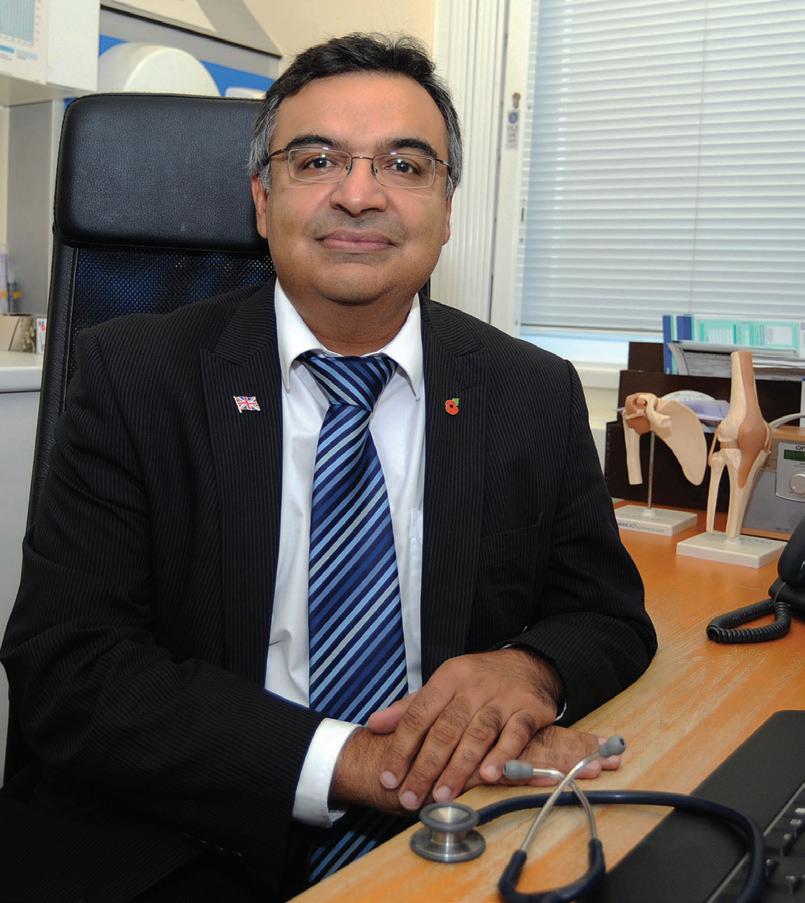
for the public in Nottinghamshire by speaking about how these national issues undermine the ability to provide care locally.
MALIK: Used to services being poor
Nottingham – and many areas of the county – is also hamstrung by high levels of deprivation. NHS England figures suggest the number of people in contact with mental health services in communities with the highest levels of deprivation is more than double that of those in the least deprived. Nottingham city is in the worst quintile for deprivation in England and also now has a ‘bankrupt’ city council struggling to provide services and desperately trying to plug funding gaps by selling off local assets.
Trust staff members say patients often need support across physical and mental health as well as finance and access to food and housing – with local economies stagnating, businesses failing, and community and voluntary sector organisations creaking and collapsing under pressure.
RHINDS: Cuts in bed numbers now causing issues
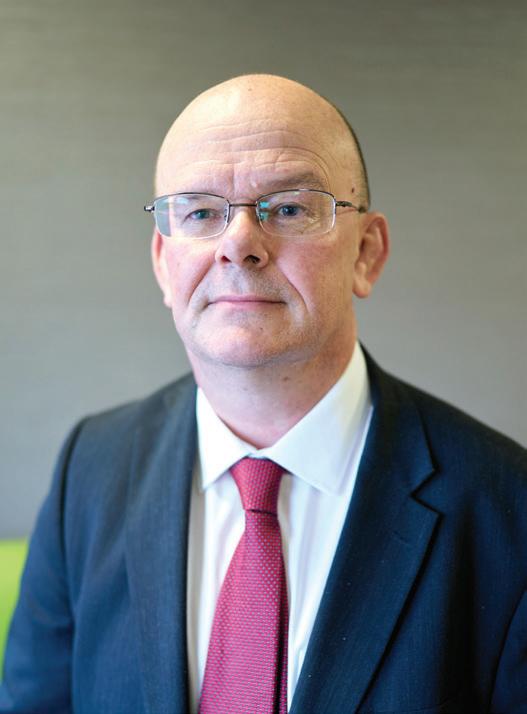
services are as stretched as they have ever been.’
Even understanding the national pressures faced across the country, Nottinghamshire’s mental health services are an outlier – heavily scrutinised with urgent action demanded. But what can be done?
The senior clinician working at the trust says leaders need to recognise it will take time to resolve things and accept the scale of the problems rather than looking for ‘quick solutions’ and ‘sticking plasters’ – otherwise you might find the ‘wrong answers’ for ‘more systemic and cultural issues’.
Dr Malik believes new leadership is the only way to make progress amid the current ‘unsustainable’ situation.
‘We are living in a society where people’s chances of becoming mentally ill are significantly increased’
Almost everyone
The BMA is urging the Government to increase resources to ensure services across the country can meet demand and is lobbying for ‘ambitious and measurable’ commitments to expanding the mental health workforce, funding protected against inflation, and an expansion of inpatient mental health beds in England.
BMA mental health lead Andrew Molodynski says care and facilities are so poor that people are often traumatised by their admission. He says: ‘After 14 years of austerity politics, the cost-of-living crisis and a pandemic along the way, we are living in a society where people’s chances of becoming mentally ill or having psychosocial crisis are significantly increased. Investment in mental health services has been nowhere near keeping up with massively increased demand so
Councillor Power doesn’t believe there is ‘the ability’ to turn the situation around among staff locally and wants external funding and further expertise to be increased.
The Doctor spoke to as part of this investigation said the voices of patients and families were lost in the chaos – and change might be impossible without their voices. Councillor Power says it shows the lack of listening from the trust that patients are still coming to her – a local politician chairing a committee few will be aware of – with complaints and requests for help.
The senior clinician said a positive step would be to place compassion at the heart of every change and every policy – with each requiring an interrogation of whether it is in the best interests of the staff member, patient, or family before being enacted.
For Sally Baylis, the calls for compassion and accountability would be welcome – but genuine honesty is also required. When the trust responded to the coroner about her husband’s case it referred to his death as ‘sad’. This was the wrong word. His death was more than just ‘sad’, it was avoidable.
DHAIRYAWAN: ‘Must
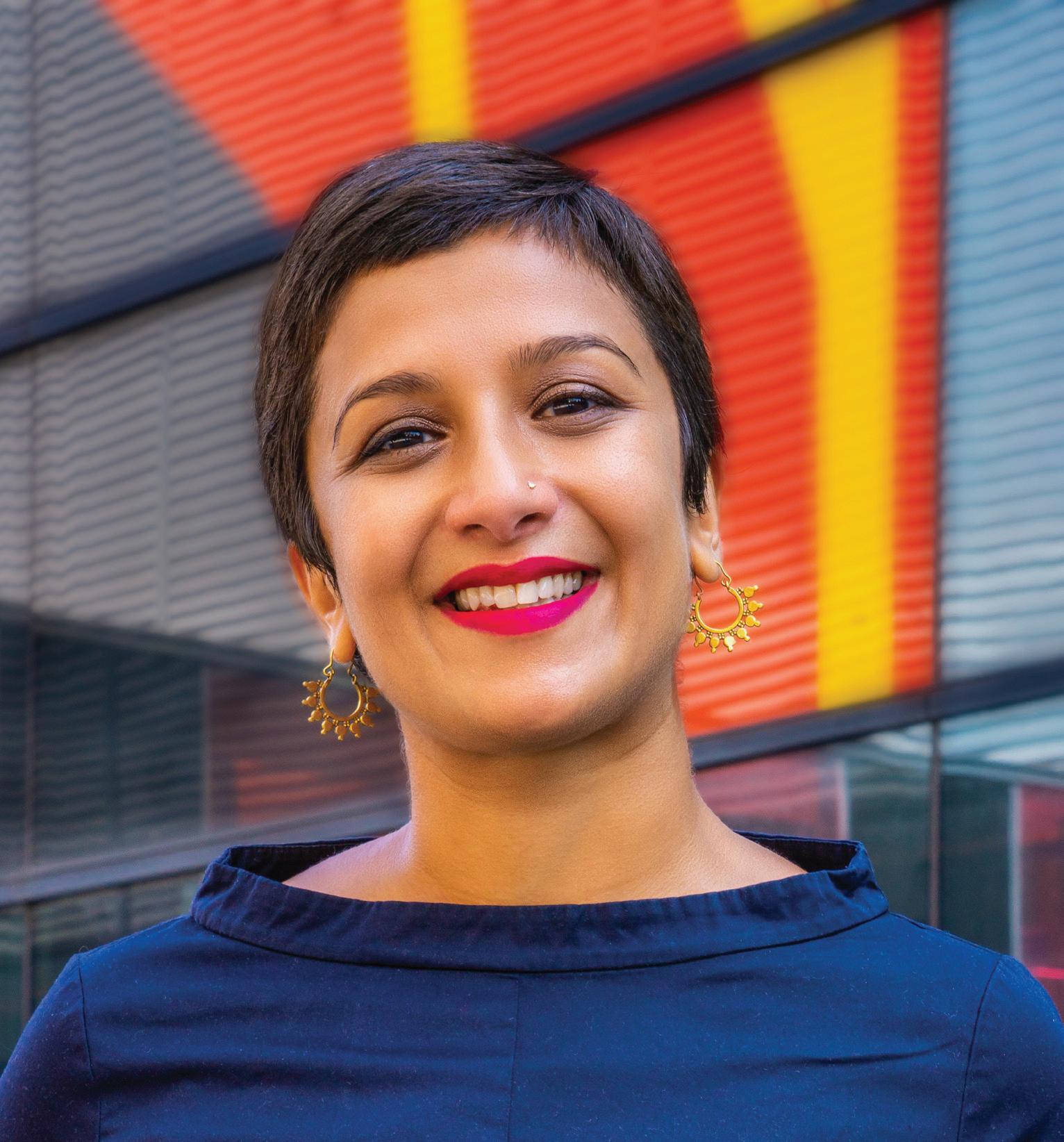
When she’s a patient, Rageshri Dhairyawan makes a point of ‘slipping in within the first minute that I’m a doctor too’.
‘Healthcare itself can cause inequities to worsen. It’s less safe for some people than others’
Her mother always dresses up to see her doctors. As a South Asian woman of a certain age, she feels she needs ‘more status’ – despite having been a GP in the NHS for 40 years.
Mother and daughter have grown used to asserting themselves gently, needing to earn credibility, in both their personal and professional lives.
But as a consultant in sexual health and HIV medicine in east London, Dr Dhairyawan is more
worried about how these things affect her patients.
She noticed early on that many of the people she was treating with advanced HIV disease were from racial minorities.
And she’s grown to realise that many patients are ‘underserved’: they fall through the cracks, are not taken seriously, often disengage.
The diagnosis she reaches in her new book, Unheard: the medical practice of silencing (Trapeze), is that medicine has lost the art of listening. And to tackle health inequalities, it must relearn it, urgently.
Patients from ethnic minorities have an often well-founded belief that they are not being taken seriously, and this can widen health inequalities. Consultant Rageshri Dhairyawan tells Seren Boyd about her new book on listening, and amplifying patients’ voices
‘Healthcare itself can cause inequities to worsen,’ she writes. ‘It’s less safe for some people than others.’
Racial health inequalities are just one example in Unheard but the racism so often at their root can have devastating consequences.
It often starts with stereotyping, Dr Dhairyawan says. A report in June found BAME (black, Asian and minority ethnic) patients on a maternity ward in University Hospitals Birmingham were called ‘Asian princesses’ for requesting more pain relief.
Unheard begins with
Dr Dhairyawan’s personal account of being hospitalised with severe pain during IVF treatment and her pleas for more pain relief being ignored. Being a ‘small Asian woman’ made her an ‘unreliable narrator’ with a ‘credibility deficit’, she concluded.
Such attitudes are dangerous. Patients not being listened to is a recurrent theme of investigations into why black women in the UK are four times more likely to die in pregnancy than white women.
A 2021 inquiry found avoidable deaths among patients with sickle cell disease, which primarily affects people of African and Caribbean heritage, were strongly associated with patients being ‘undermined or disbelieved’.
Little wonder, then, that patients respond with mistrust and disengage – deepening health inequalities.
‘We cannot rely on people being brave and speaking up,’ says Dr Dhairyawan. ‘We must make it safe for people to voice their concerns.’
‘Deep listening’
But healthcare has another fundamental problem, Unheard argues: a paternalistic, ‘doctor knows best’ attitude instilled from the very start of medical school.
A formulaic approach to taking a history, a reliance on test results and trials, exclude the opportunity to listen closely to patients’ concerns, motivations and priorities.
The doctor-patient relationship becomes transactional: ‘people come with something that’s “broken” and we “fix” it.’
Deep listening is designed out of the health system:
10-minute GP appointments, declining continuity of care, scant private space for confidential conversations.
Dr Dhairyawan wants to see the patient voice amplified across healthcare, from shared decision-making to policymaking.
‘Patients know their body better than anyone else,’ she says. ‘There needs to be more respect for this.’ But it starts in the consultation room: an ‘I believe you, I hear you’ can make a world of difference.
‘We know that when people have their feelings validated, that in itself is therapeutic,’ she says. And doctors would be relieved of some pressure if they saw themselves more as ‘healers’ than ‘fixers’.
Emotional burden
However, doctors need support to be able to listen well, she argues.
Medical students need training in listening skills and earlier interactions with patients and other health professionals so they learn to value others’ experience and expertise.
And doctors in all branches of medicine need regular breaks, debriefs, consistent supervision, mentoring, to help them shoulder the emotional burden of deep listening.
Dr Dhairyawan admits listening well is hard: ‘But recognising that is the first step.’
A good place to start would be learning to listen better to minoritised groups and their particular challenges. ‘If we get it right for the most marginalised minorities, we’ll get it right for everyone,’ Dr Dhairyawan says.
‘We need to understand what’s happening when they
don’t do what we tell them. Maybe they’re struggling to lose weight because they’re busy working three jobs and do night shifts.
‘Quite commonly I’ll have people who’ve never told anybody in their family they’re living with HIV because they feel so ashamed or fear being ostracised.’
Designing and targeting services with marginalised groups in mind – and with their input – will go a long way towards mending bridges, she believes.
In her own specialty, HIV services and narratives traditionally focused on white men; most women with HIV in the UK are from black and other racially minoritised backgrounds.
Change can start with practical steps such as culturally appropriate resources in different languages. Dr Dhairyawan and her team often accompany patients to register with a GP or intervene when they’ve encountered stigma.
Patients’ advocates need to be heard, too. Lack of diversity in leadership and decision-making boards means issues affecting minoritised groups don’t get as much funding, research and policy attention.
Dr Dhairyawan experienced discrimination early, on her first day of work experience, at 17. A patient used a racist slur and demanded she leave his cubicle; the doctors present suggested it ‘might be better’ if she did.
She wrote Unheard because of patients everywhere, patients like herself. ‘If we’re not heard in healthcare, we lose some of our humanity.’
‘We cannot rely on people being brave and speaking up’
TRIVEDI AND LAURENSON: Recommending the offer which is being put to members

Junior doctors in England have been made an offer which will begin to restore their pay. Now it’s up to members to decide. Ben Ireland reports
‘This offer moves us further along our journey to full pay restoration’
It’s a good step forward, but more needs to be done.
Rob Laurenson and Vivek Trivedi, cochairs of the BMA junior doctors committee, are cautious in their assessment of the offer they are recommending members accept after nearly two years of industrial action and 11 rounds of strikes.
And, as they have made clear in numerous TV interviews: ‘We have always said that we did not expect to get there in one go.’
Junior doctors – to be renamed as resident doctors by the BMA from September – began voting on the pay offer, the first made by
the new Labour government, on 19 August. The referendum closes on 15 September.
If they accept the offer, their pay will be closer to being restored than it was when action first began, as a result of an average pay uplift across the two years of the dispute of 22.3 per cent.
The pay offer consists of an additional 4.05 per cent for 2023/24 on top of the average 8.8 per cent previously awarded, taking that year’s pay uplift to an average of 13.2 per cent, backdated to April 2023.
Separately, the Government’s acceptance of the recommendation of
the Review Body on Doctors’ and Dentists’ Remuneration for 2024/25 – of 6 per cent plus a consolidated £1,000 for junior doctors – would provide an average 8 per cent increase across grades this year.
So while pay fell by more than 26 per cent in the 13 years to 2021/22, which would take a 35 per cent pay uplift to restore, Drs Laurenson and Trivedi say accepting the deal ‘changes the current trajectory’. Pay would remain on average 20.8 per cent behind 2008 levels, but that is compared with being 31.7 per cent behind at its peak.
The co-chairs point out that the offer includes more than just pay. Alongside the uplifts are commitments from government to work with the BMA to streamline the way in which junior doctors exception report, removing supervisors from the process, removing ‘draconian’ deadlines and requirements to justify, and lowering the scrutiny threshold for reports of under two hours.
Reform of the current system of junior doctor training and rotational placements, taking into account training bottlenecks, has also been negotiated.
Furthermore, the Department of Health and Social Care has agreed to the name change from junior doctors to resident doctors, backed at this year’s BMA annual representative meeting.
The Government says it ‘acknowledges concerns raised by the BMA and other parties that the medical profession is not as attractive a career prospect as it once was’ and committed to ask the DDRB to consider in its annual recommendations the overall reward package and career progression for junior doctors ‘to ensure that medicine is an attractive and rewarding career choice to deliver our consultants and GPs of the future’.
If this commitment is rowed back on, the committee insists it may re-enter dispute with government.
One change that the co-chairs say is critical to recommending this offer is that ‘no doctor is left behind’. Unlike the offer from the previous government in December, all locally employed doctors including those on the 2002 contract would see an above-inflation uplift.
‘We believe this is the best offer available at this moment in time and that
the inclusion of the additional reforms make the package a good step forward for our profession, acknowledging there is still more work to be done in the future,’ say Drs Laurenson and Trivedi, who were involved in talks with health secretary Wes Streeting soon after Labour came to power.
Before the election, Mr Streeting had said moves towards pay restoration would be a ‘journey, not an event’. Announcing the offer, he said: ‘This is a fair offer. Fair to junior doctors, fair to patients and fair to the NHS. It also represents an opportunity to truly reset relationships so we can begin working together to bring waiting lists down and fix the broken NHS.’
The offer includes the condition to withdraw the BMA rate card for junior doctors in England. This was also a condition of the offers accepted by consultants and specialist, associate specialist and specialty doctors, and the junior doctors committee points out that the rate card is not enforceable, but rather a tool to inform doctors of their value. Doctors may still negotiate rates for extra-contractual work.
If the offer is accepted, it would bring this dispute to a close – but there is nothing stopping a fresh ballot of the membership at any given time in the future if needed. On the other hand, the committee says rejecting the offer may scupper the chance to ‘bank’ backdated pay for 2023/24, and that forcing any more concessions from government would require ‘strong, more escalated strike action’ for what it expects to be ‘marginal gains’.
‘Banking’ the offer would see junior doctors achieve the highest pay award of any public sector workers over the last two years. They say this offer ‘would not have been possible’ without members’ action.
The committee says: ‘This offer moves us further along our journey to full pay restoration and will continue each following year, banking wins along the way, re-entering disputes should we need to, and giving our organisation time to build capacity in between.’
In a letter to members, Drs Laurenson and Trivedi explain: ‘The committee believes this is a credible first step in restoring your pay, but you have the power to decide.’
More information on the detail of the offer is at bma.org.uk/jdoffer
‘We believe this is the best offer available at this moment in time’
A health service running close to capacity was led by a government ‘preparing for the wrong pandemic’, a public inquiry has found. Ben Ireland reports
The BMA wants to see immediate changes in response to the first report of the UK COVID-19 public inquiry, which found the UK Government ‘failed their citizens’ through its insufficient preparations for a pandemic.

those risks could be managed.
‘Preparedness was inadequate for a global pandemic of the kind that struck’
Inquiry chair Baroness Hallett (pictured above) said the UK ‘prepared for the wrong pandemic’, with its focus on influenza, as she summarised the findings and recommendations from module one of the public inquiry, which looked at the UK’s resilience and preparedness for pandemics.
‘Preparedness was inadequate for a global pandemic of the kind that struck,’ the report says, noting that ‘the institutions and structures responsible for emergency planning were labyrinthine in their complexity’.
She warned ‘there will be a next time’, and without better preparation there would be a ‘huge’ human and financial cost.
Baroness Hallett said health inequalities had widened in the period before the pandemic, with services close to, if not beyond capacity. There were also ‘fatal strategic flaws’ underpinning the assessment of risk faced by the UK, and how
She also recommended a new approach to risk assessment, assessing a wider range of scenarios, introducing new mechanisms for timely collection, analysis and sharing of reliable data and bringing external expertise into government to ‘challenge orthodoxy’ and ‘guard against the acute problem of groupthink’.
‘Unless the lessons are learned, and fundamental change is implemented, the human and financial cost and sacrifice of the COVID-19 pandemic will have been in vain,’ she said.
‘We were failed’
BMA council chair Phil Banfield, who attended the report launch, said: ‘This report reveals in all its true horror how appallingly under-prepared the governments were for the pandemic, that processes failed us as citizens, and that lives could have been saved.
‘We knew that when the pandemic began our healthcare services were already struggling to cope and ‘running hot’ because of years of neglect and under-investment by the Conservative Government.
‘This report lays bare how,
time and time again, ministers were told that we simply did not have enough staff or resources to cope with the predictably huge surge in demand for healthcare that a pandemic would bring. It shows just how many times governments ignored key findings.’
Professor Banfield said the ‘failure to learn from past civil emergency exercises and outbreaks of disease’, noted in the report, ‘led to an excess loss of life and to thousands of doctors and other healthcare staff being put at unimaginable risk on a daily basis for two years’.
He added: ‘The BMA finds that the UK is still poorly equipped, under-staffed and under-prepared to manage a future pandemic when it comes. The report makes clear the urgency of improving the UK’s preparedness.
‘That is a monumental and wide-ranging task for the new Government, that Baroness Hallett specifically states will need significant funding. A small but significant step in the right direction would be to see proper investment in health and social care staffing.’
For information on the BMA’s work on the COVID inquiry see bma.org.uk/ukcovidinquiry
Highlighting practical help given to BMA members in difficulty
If you have ever been self-employed, you will know the benefits it can bring but also the drawbacks –one of the biggest being the lack of holiday pay.
For someone running their own business, they accept this as a price they have to pay. The problem comes when organisations wrongly label workers as self-employed, which denies them holiday pay and other rights.
Charlotte Jones, an out-of-hours GP, was told by SBUHB (Swansea Bay University Health Board) that she was self-employed. They told her she was ‘inside IR35’, a set of tax rules which apply to those who provide their services through an intermediary. A complete red herring because she didn’t use one. This denied Dr Jones not just her holiday pay but a COVID-related bonus because she was not, in their reckoning, an employee.
BMA assistant secretary Christopher Saunders took up her case. After telling the health board that Dr Jones did not operate through an intermediary, he secured her bonus, but her employment status remained in dispute.
Mr Saunders referred the case to the BMA legal services provider, Capital Law. Its assessment was clear, that Dr Jones was, at a minimum, a ‘worker’. In terms of employment law, there are three legal categories – employed, self-employed, and ‘worker’ – the latter of which attracts many of the rights of the employed, including the right to holiday pay.
Three other doctors who did out-of-hours work for the health board in a similar situation to Dr Jones then contacted the BMA, giving the case greater momentum. Mr Saunders put pressure on the SBUHB, then engaged with a GP lead designated by NHS Wales to review terms and conditions for GPs in the hope of finding an
The Doctor BMA House, Tavistock Square, London, WC1H 9JP. Tel: (020) 7387 4499
Email thedoctor@bma.org.uk

Call a BMA adviser 0300 123 1233 @TheDrMagazine @theBMA
The Doctor is published by the British Medical Association. The views expressed in it are not necessarily those of the BMA. It is available on subscription at £170 (UK) or £235 (non-UK) a year from the subscriptions department. All rights reserved. Except as permitted under current legislation, no part of this work may be photocopied, stored in a retrieval system or transmitted in any form or by any means, electronic, mechanical or otherwise without the written permission of the editor. Printed by Warners Midlands. A copy may be obtained from the publishers on written request. The Doctor is a supplement of The BMJ. Vol: 386 issue no: 8441 ISSN 2631-6412
all-Wales solution without recourse to legal action, and finally attempted ACAS early conciliation.
But there was not sufficient progress, so Mr Saunders advised members to start legal proceedings. Four claims went to the employment tribunal, and were later joined together as a collective one. Claims are of course a serious undertaking – involving responding to requests for further information, providing and reviewing the disclosure of documentation and the preparation of witness statements.
SBUHB and the group eventually settled the case amicably. Whilst SBUHB did so without admitting liability, the fact that this claim, like others we support, was settled, in our view speaks volumes about the reality of the true employment status for this group of doctors.
We are mindful that this will continue to affect a large proportion of our membership. Therefore, if you are an out-of-hours GP BMA member, we strongly encourage you to come forward so that we can review your case.
In Wales, we have also encouraged NHS Employers Wales to work with us to find a national solution, and the early indications are promising. In the absence of a national solution, we will be forced to support legal claims, and public time and money will be wasted on the futile defence of them. We want to avoid this.
Dr Jones said: ‘I am very pleased that the BMA and Capital Law took forward an issue that has been going round in circles since at least 2017 and my colleagues and I are very pleased with the outcome.’
She encouraged other BMA members in the same situation to come forward.
BMA members can obtain employment advice and support by visiting bma.org.uk/contact
Editor: Neil Hallows (020) 7383 6321
Chief sub-editor: Chris Patterson
Senior staff writer: Peter Blackburn (020) 7874 7398
Staff writers: Tim Tonkin (020) 7383 6753 and Ben Ireland (020) 7383 6066
Scotland correspondent: Jennifer Trueland
Feature writer: Seren Boyd
Senior production editor: Lisa Bott-Hansson
Design: BMA creative services
Cover photograph: Sarah Turton
Read more from The Doctor online at thedoctor.bma.org.uk

















